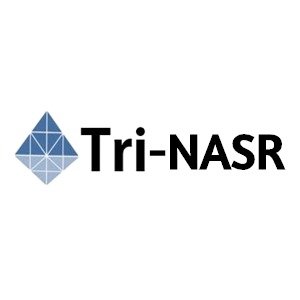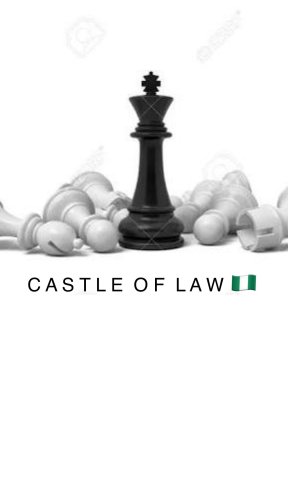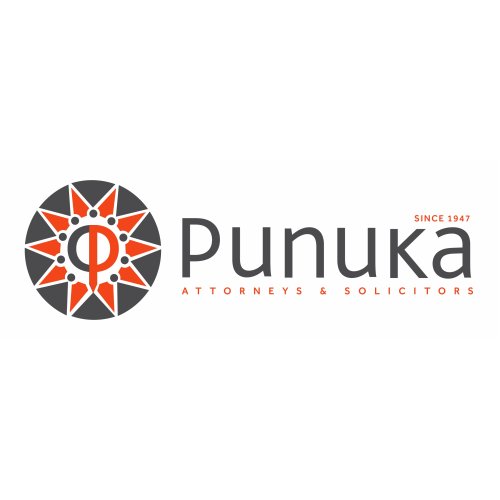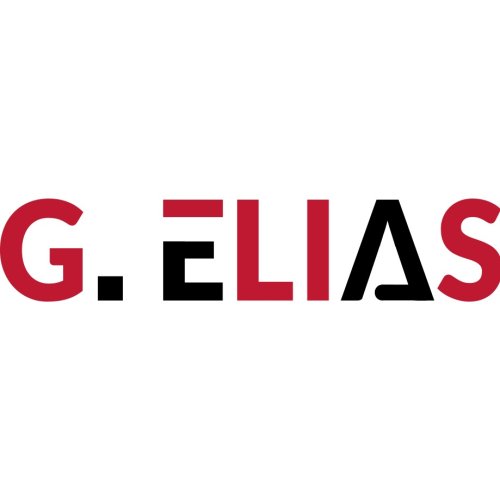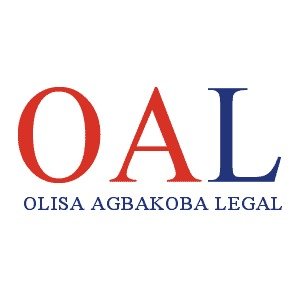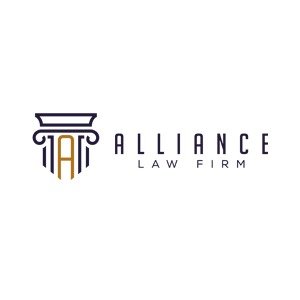Best Antitrust Litigation Lawyers in Abuja
Share your needs with us, get contacted by law firms.
Free. Takes 2 min.
List of the best lawyers in Abuja, Nigeria
About Antitrust Litigation Law in Abuja, Nigeria
Antitrust litigation in Abuja, Nigeria, refers to legal processes and court actions aimed at resolving disputes concerning anti-competitive practices in the marketplace. The primary goal of antitrust law is to promote fair competition, protect consumers from monopolies or cartels, and prevent the abuse of market power. Abuja, as the capital city and the seat of Nigeria's main competition regulators, is the hub for such litigation in the country. Cases can involve individuals, businesses, or regulatory authorities seeking to enforce or defend against claims related to anti-competitive conduct.
Why You May Need a Lawyer
Antitrust issues can have significant legal, financial, and reputational consequences. You may require a lawyer if you are:
- Filing a complaint against another business for engaging in anti-competitive practices such as price-fixing, abuse of dominant position, or restrictive agreements
- Being investigated or accused by regulatory authorities for violating antitrust laws
- Negotiating merger or acquisition deals that might raise competition concerns
- Responding to demands from business competitors or government agencies about your business conduct
- Seeking to understand your obligations under Nigerian competition law to avoid legal risks
- Affected by market practices that limit your ability to compete fairly
A lawyer with expertise in antitrust litigation can help you navigate complex regulations, represent you in court or before agencies, and provide strategic advice to defend your interests.
Local Laws Overview
The primary legal framework for antitrust and competition matters in Abuja is the Federal Competition and Consumer Protection Act (FCCPA) of 2018. The FCCPA governs the conduct of businesses across Nigeria, prohibiting practices that harm competition such as price-fixing, market sharing, predatory pricing, bid-rigging, and abuse of dominant market positions. The Act also sets procedures for notifications of mergers and acquisitions that could lessen competition.
The Federal Competition and Consumer Protection Commission (FCCPC) is the principal regulatory body responsible for enforcing these laws. In addition to the FCCPA, certain sector-specific regulations may apply, such as those overseen by the Nigerian Communications Commission or the Central Bank of Nigeria for regulated industries.
In litigation, the Federal High Court in Abuja has jurisdiction over antitrust matters, with possible appeals going to higher courts. Remedies for proven violations can include fines, injunctions, damages, or even orders to break up companies.
Frequently Asked Questions
What activities are considered anti-competitive under Nigerian law?
Activities such as price-fixing, bid-rigging, dividing markets, abuse of dominant position, and collusive agreements are considered anti-competitive and are prohibited by the FCCPA.
Who enforces antitrust laws in Abuja?
The Federal Competition and Consumer Protection Commission (FCCPC) is charged with investigating and enforcing antitrust laws in Abuja and throughout Nigeria.
Can individuals or businesses start their own antitrust lawsuits?
Yes, individuals and businesses that have suffered harm due to anti-competitive conduct can file claims before the Federal High Court in Abuja seeking remedies.
What penalties can be imposed for violating antitrust laws?
Penalties can include significant fines, court orders to stop prohibited conduct, damages to affected parties, and in severe cases, criminal sanctions.
Are all mergers and acquisitions subject to antitrust review?
Mergers and acquisitions above certain financial thresholds must be notified to and approved by the FCCPC before they are finalized, especially if they may restrict competition.
How long do antitrust investigations typically take?
The duration can vary depending on the complexity of the case, but investigations may take several months or longer, especially if court actions are involved.
Can foreign companies be investigated or sued under Nigerian antitrust laws?
Yes, any company conducting business in Nigeria, including foreign firms, can be subject to antitrust laws if their conduct affects the Nigerian market.
What should I do if I am notified of a pending antitrust investigation?
Consulting an experienced antitrust lawyer immediately is crucial. You should cooperate with authorities but ensure your legal rights are protected during the process.
How are claims of abuse of dominant position assessed?
Authorities look at factors such as market share, the ability to exclude competitors, and whether the company engages in conduct to unfairly restrict competition or harm consumers.
Is it possible to settle antitrust cases out of court?
In some instances, parties may reach settlements with regulators or injured parties to resolve disputes without formal court proceedings, but some violations may still require court oversight or approval.
Additional Resources
If you need further information or support on antitrust matters in Abuja, the following organizations and resources can be helpful:
- The Federal Competition and Consumer Protection Commission (FCCPC) - Regulatory authority enforcing competition laws
- Nigerian Bar Association (NBA) - For finding qualified lawyers specializing in competition law
- Federal High Court of Nigeria - Handles litigation over antitrust claims
- Business advocacy groups and chambers of commerce - Many offer publications or training on compliance with competition laws in Nigeria
Next Steps
If you believe you are facing or may face antitrust issues in Abuja, consider the following actions:
- Identify and document all relevant facts and communications concerning the anti-competitive conduct you suspect or are accused of
- Seek early legal advice from a lawyer with experience in antitrust and competition law to evaluate your case and possible outcomes
- Respond promptly to any official notices or requests for information from regulatory authorities
- If you are planning a merger, acquisition, or other significant business transaction, seek pre-approval or advice to ensure compliance with competition laws
- Educate your staff and collaborators about competition law obligations to minimize risk
Taking these steps early can help protect your rights, minimize legal exposure, and ensure you are well-positioned to address any antitrust litigation issues in Abuja, Nigeria.
Lawzana helps you find the best lawyers and law firms in Abuja through a curated and pre-screened list of qualified legal professionals. Our platform offers rankings and detailed profiles of attorneys and law firms, allowing you to compare based on practice areas, including Antitrust Litigation, experience, and client feedback.
Each profile includes a description of the firm's areas of practice, client reviews, team members and partners, year of establishment, spoken languages, office locations, contact information, social media presence, and any published articles or resources. Most firms on our platform speak English and are experienced in both local and international legal matters.
Get a quote from top-rated law firms in Abuja, Nigeria — quickly, securely, and without unnecessary hassle.
Disclaimer:
The information provided on this page is for general informational purposes only and does not constitute legal advice. While we strive to ensure the accuracy and relevance of the content, legal information may change over time, and interpretations of the law can vary. You should always consult with a qualified legal professional for advice specific to your situation.
We disclaim all liability for actions taken or not taken based on the content of this page. If you believe any information is incorrect or outdated, please contact us, and we will review and update it where appropriate.





